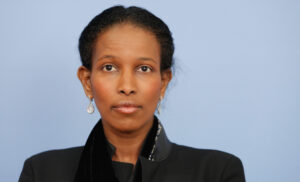Last June, I walked down to our local public school here in the foothills of Los Angeles to pick up my son from his last day of kindergarten. As we were leaving, I snapped a picture of a sign on the wall. “Kindness is Kool!” it proclaimed in loud rainbow colours.
When I first saw the sign, at the beginning of the school year, it barely caught my attention. It was typical, something you might see in any public school in America. I’m also very much in favour of being kind. But, seeing it every day for several months, it started to bug me. Is that true? Is kindness “kool”? What is the school trying to communicate here? Suddenly, the banality of the sign was precisely what made it worthy of my attention.
Let’s start with the obvious fact that, no, it isn’t always true that kindness is cool. The cool kids often act unkindly. And I can think of many scenarios in which I would want my son to be kind, even if it meant that everyone would regard him as uncool. So this seems to be a classic case of a category error: what’s moral is not always what will make you popular or cool. Perhaps we ought not to be lying to our children about the nature of good and evil.
But, I can hear you protest, surely, the sign is meant to be merely aspirational. It’s a way of saying that we hope to live in a community in which it’s cool to be kind. I fear, though, that this makes things even worse. For it seems to concede that morality is secondary to “coolness”, and all we can do is hope that the Arbiters of Cool decide to use their considerable powers to promote kindness.
And yet I think the sign hints at an even bigger problem. Like many of our cultural institutions, my son’s school seems to have elevated kindness to the top of the moral hierarchy.
Here is the school’s mission statement: “Be kind and encouraging; Accept responsibility; Respect others and be safe!” Again, utterly banal. But also wrong-headed. Kindness is not some kind of Uber Value from which all moral behaviour flows. In fact, when I think back on the acute moral crises of my life, these were the times when kindness wasn’t nearly enough, and I had to summon the courage to be unkind in order to do what was right.
My son’s school is actually quite a good school, and there are lots of strong, moral people who work there. The question is: why are they talking about morality in this depleted way? Why are their stated values so bland and so weak?
Our public understanding of morality is in crisis. Indeed, even outside of school, we struggle to talk about morality at all. In a recent advice column in The New York Times, a reader asked whether it was okay for her adult daughter to bring her married lover on a family trip to Greece. Instead of telling the writer to keep this creep as far away from her family as possible, the NYT expert advised her to be more tolerant:
“This is about respecting your adult daughter’s choices. You have substituted your idea of happiness for hers. This is a common (and often well-intentioned) trap for many parents. It’s not productive, though… As a show of respect, read up on polyamory before you broach the subject with her.”
The phrase “not productive” is doing a lot of work here. We often now use words such as “unproductive” or “inappropriate” or “unhealthy” to describe behaviours that we want to eliminate, either in ourselves or others. But those are borrowed concepts — one from economics (“productivity”), one from etiquette (“appropriateness”), and one from medicine (“health”).
Economics, etiquette, and medicine are wonderful. I’m in favour of all three. But these are clumsy metaphors for morality, and I fear that talking this way has led us astray. For the production of something may be for good or for ill; what’s appropriate or polite may not be what is morally right; and a healthy body may be engaged in deeply immoral activities. (And, no, I’m not just talking about sex.)
I think what’s going on here is that we’ve become very uneasy about using the moral categories of the past. “Kindness” and its cousin “tolerance” are the only values that seem consistent with our current age of agnostic pluralism. We’ve also been trained to defer to an individual’s preferences, and it seems wrong to pass judgment on another person’s choices (unless, of course, they’re being “unkind”).
A certain kind of conservative sees all of this and argues that we just need to get back to the simplicity of Right vs Wrong. Perhaps all this talk of being kind, encouraging and respectful is just a muddled-up way for us to avoid making the difficult judgments about good and evil. And there’s some truth in this critique. But I also believe that “Right vs Wrong” is already an impoverished framework. Those categories are dualistic, and they imply a flat moral world in which every action can be plotted on a sort of number line and given a positive or negative value. That’s not how we experience questions of morality.
I think it’s right, though, to look back into our past. There we can rediscover the concepts of Virtue and Sin.
“What have you learned about virtues?” I asked my nine-year-old daughter last week. We have her in a small classical school that was founded by Catholic lay people. (My son is joining her there this fall.) Defiantly counter-cultural, the school has a very different approach to talking about morality. I was curious what she would say.
“I think there’s perseverance and fortitude,” she said. “And a couple others. I can’t remember.” Then a pause. “Wait, wait! I remember,” she exclaimed, breaking into a proud smile. “From my catechism!” Here she started reciting: “The three theological virtues are faith, hope and charity.”
In the Christian tradition, there are several different lists of virtues. Kindness is one of the seven capital virtues, standing in opposition to envy, one of the seven deadly sins. The other capital virtues are: humility, temperance, chastity (not what you think it is!), patience, charity, and diligence. Other Christian formulations include things like endurance, devotion, and wisdom.
But those concepts have no place in a public school, right? We live in a multicultural society, and I probably shouldn’t have smuggled Christian values into a discussion about public morality, especially not in the public schools. (Well, except for kindness. Let’s keep that one.)
But the project of naming and defining virtues is not a uniquely Christian one. The pre-Christian Greeks talked of the four cardinal virtues of prudence, fortitude, temperance and justice. This is the list that my daughter was trying to remember. Plato adds piety. Aristotle writes of courage and truthfulness, among others. The Romans had an even longer list.
Of course, these are Western cultures. What about someone from Africa or India or China? What about a Muslim student?
You might be surprised to learn, like I was, that all of these cultures have concepts that are quite similar to the idea of Virtue. And all of them identify individual virtues that stretch far beyond the idea of kindness. India has the ideas of dharma and aram. In Ancient Egypt, the goddess Maat represented the virtues of harmony, truth, and justice. Buddhism has the Ten Perfections. In Confucianism, there are ren, xiao, and li.
I’m not an expert in the moral and ethical traditions of any of these cultures. Indeed, like almost everyone else of my generation, I went to schools — both secular and Christian — that downplayed talk of the virtues, so I don’t even have a great handle on the Greek or Christian understandings of that concept. I wish I did.
What I’m starting to realise, though, is that we need to revive the concept of Virtue if we’re going to talk clearly and accurately about morality. Pluralism itself, instead of undermining the case, demands that revival. In our effort to be culturally sensitive, we’ve purged our moral conversation of concepts that occur again and again across all the wisdom traditions of our species. We’ve created an alien life form in a petri dish, and we’ve unleashed it on our children.
We all need Virtue. And wherever you have Virtue, you also have Sin.
Let’s look again at the school’s list: Be kind, encouraging, accept responsibility, and be safe. All good goals. But ask yourself what isn’t on their list.
What’s missing are all the virtues that have anything to do with strength or excellence: Prudence, Fortitude, Chastity, Diligence, Wisdom, Perseverance, etc. The closest the school comes to any of these is its humble request that the students “accept responsibility”. Pretty weak stuff.
To state the obvious: you can’t be a good person without being strong. You need to be strong enough to resist your own baser instincts. You need strength in order to stand up to others who are intent on doing evil. And you need discipline — daily strength — in order to do all the good that you are capable of in this world.
The Latin word virtus comes from their word for man (vir), and it originally meant a brave warrior. But it came to mean moral strength as well. This weirdly echoes with the Confucian concept of ren, which originally meant “virility” but came to encompass morality. Other cultures also link Virtue with strength and manliness. Look at the Buddhist perfections of viriya or adhiṭṭhāna. Or the Hindu concept of dhriti.
What’s wonderful about the more traditional understanding of Virtue is that it inspires. Yet this world of virtues also leaves a ton of room for complexity, for it is quite difficult to balance truthfulness and kindness, prudence and perseverance, or diligence and humility. And this is where Sin comes in.
I know, I know. We’re all uncomfortable with that word and that idea. And certainly it has been overused as a tool for denouncing other people’s behaviour. But the idea of Sin is absolutely essential for understanding yourself from the inside. To be human is to be in a constant state of Sin.
Marilyn Simon, a literature professor, has written a beautiful essay “In Praise of Sin” about the damage we do when we try to understand ourselves purely psychologically, without recourse to the idea of Sin. And James Mumford has written about his own struggles with mental illness within a health system that, on the surface, claims to deny the reality of Sin by letting each person define his own values. “When I’m feeling worthless,” Mumford tells his psychologist, “you don’t act as if values are subjective. You don’t reply, ‘Yes, you’re right. If you feel worthless, you are worthless!’”
You can’t be a full human being without acknowledging your own capacity for Sin. If we set the bar high enough, it will inspire us to moral achievements that we can only imagine. But it will also set us up for daily failure, even when we mean to do well.
We call that daily failure Sin.
I will confess here that I don’t routinely talk about Virtue and Sin with my six-year-old son. And even just this morning I told him that his behaviour was “inappropriate” before giving him a timeout for taking a swipe at his brother. It would have been passing strange for me to say: “Son, you’ve been sinful this morning.”
But I also don’t try to shield him from these ideas. In our house, we try to talk clearly and honestly about morality. The concepts of Virtue and Sin, when they aren’t explicit, are often implied. What are we striving for? And how are we falling short? As a parent, I find that I frequently need to ask my children (or my wife) for their forgiveness, for I am always falling short of my own ideal of virtuous parenting.
Two years ago, my daughter had to go to Confession for the first time, as her school made it a prerequisite for receiving her First Communion. At the time, I hadn’t yet come back to the Church myself, and it had been at least two decades since I had gone to Confession. I was quite nervous about helping my daughter prepare to acknowledge her sins and ask for God’s forgiveness.
We sat down on our couch, and we began to go through a very simple “Examination of Conscience” based on the Ten Commandments. Her teacher had given me some helpful guidance, but I found the conversation to be quite difficult. She and I both knew exactly which incidents needed to be confessed, but she had a hard time talking about them.
It’s not that she’s particularly sinful; she’s actually an incredibly good kid. And that was precisely the problem. Being good is a part of her identity, and it was very painful for her to recollect and try to talk about these incidents when she had behaved sinfully.
She started to get upset, and tears started to flow. For a moment, I thought I had messed the whole thing up. I had triggered her shame response. Maybe this was all a terrible mistake. Maybe a second-grader shouldn’t be going to Confession.
So I slowed down. I reassured her that this was a natural part of the process. It may be shameful to sin, but it’s not at all shameful to admit that we have sinned. And I reminded her of some of my own sins, all of which she was quite happy to help me remember.
In the end, she was able to write down some of her sins on the paper which she took into Confession. And, by her account, the Confession went well, and she felt so much better afterward.
The whole incident had opened my eyes. Isn’t this the danger for all of us? That our shame will prevent us from looking at our sins squarely? I was grateful for this ritual, this sacrament, that helped my daughter confront — and accept — her own shortcomings. She will often now tell me cheerfully, unprompted, that she did something that needs to be confessed.
Later that year, I went through the same process when I confessed over 20 years of sins to my priest. My life was quite rocky in the years before I met my wife, and I had been through years of therapy and confronted lots of my own “unhealthy” and “unproductive” behaviours. But now I had to be honest and clear that decades of difficulties had often been the product of my sins.
Which is why I’m going to say something now that is going to sound crazy in our current environment, perhaps even appalling. Our children, in elementary school, need to be learning about Virtue and Sin. By the third grade, they are fully capable of comprehending these ideas and applying them to their own lives. That doesn’t mean it will always be easy. Being human isn’t easy. But “Kindness is Kool” isn’t going to cut it anymore.
Disclaimer
Some of the posts we share are controversial and we do not necessarily agree with them in the whole extend. Sometimes we agree with the content or part of it but we do not agree with the narration or language. Nevertheless we find them somehow interesting, valuable and/or informative or we share them, because we strongly believe in freedom of speech, free press and journalism. We strongly encourage you to have a critical approach to all the content, do your own research and analysis to build your own opinion.
We would be glad to have your feedback.
Source: UnHerd Read the original article here: https://unherd.com/




